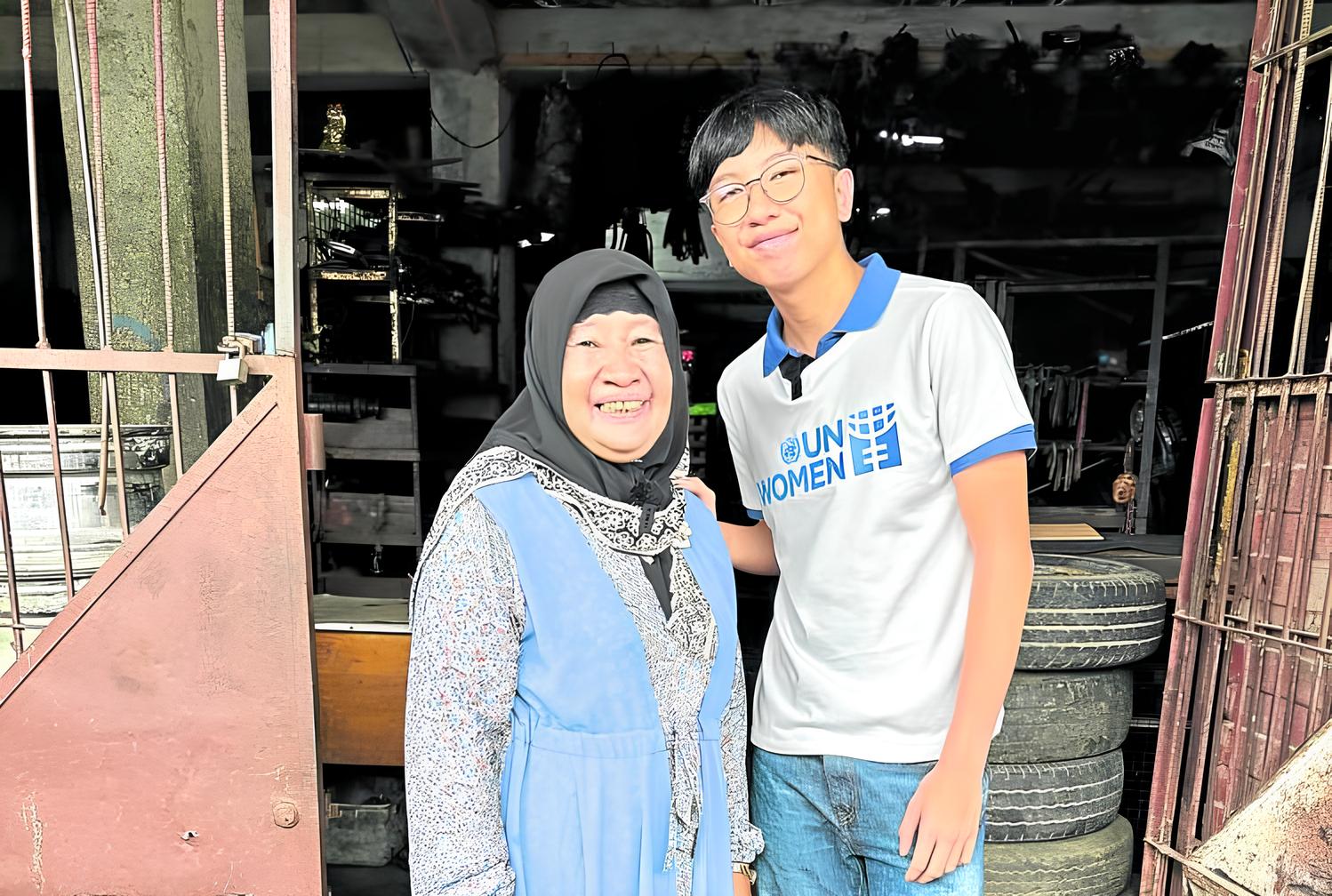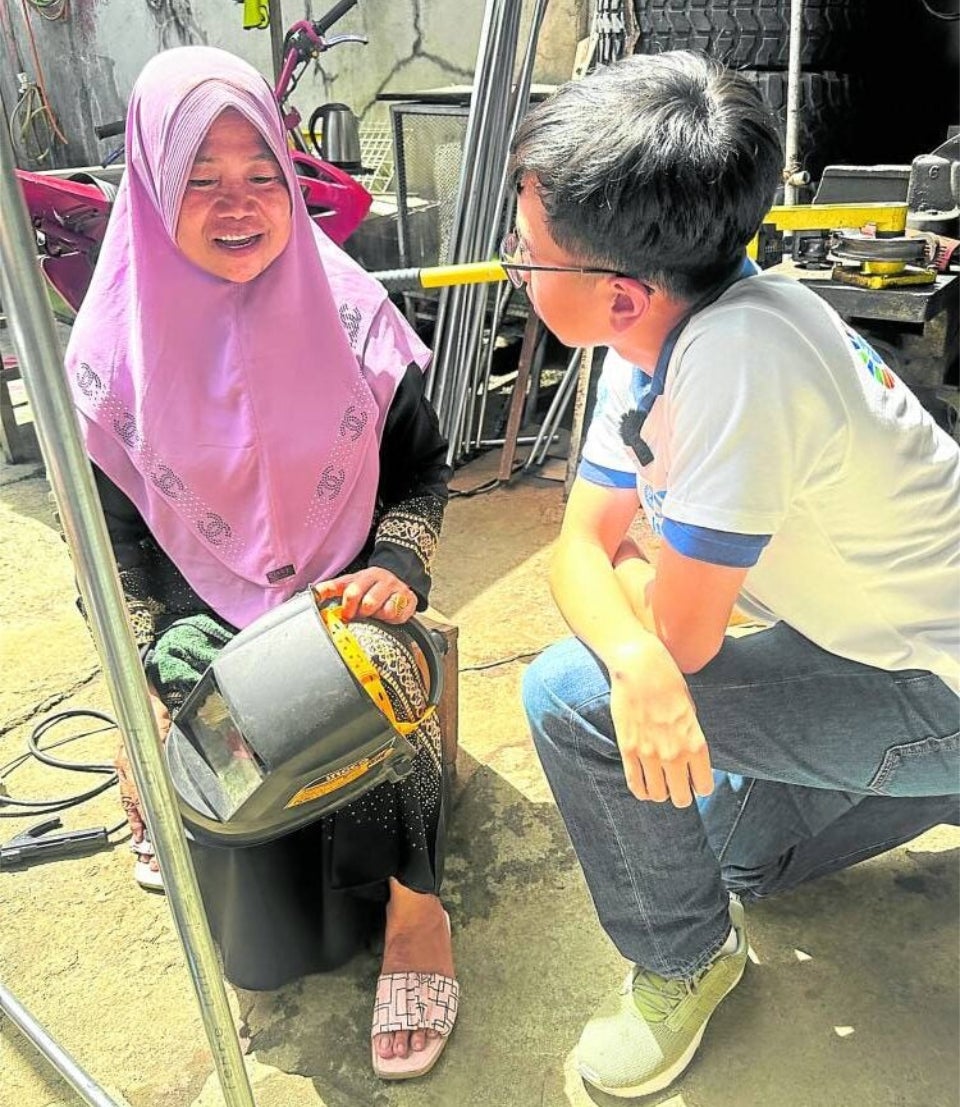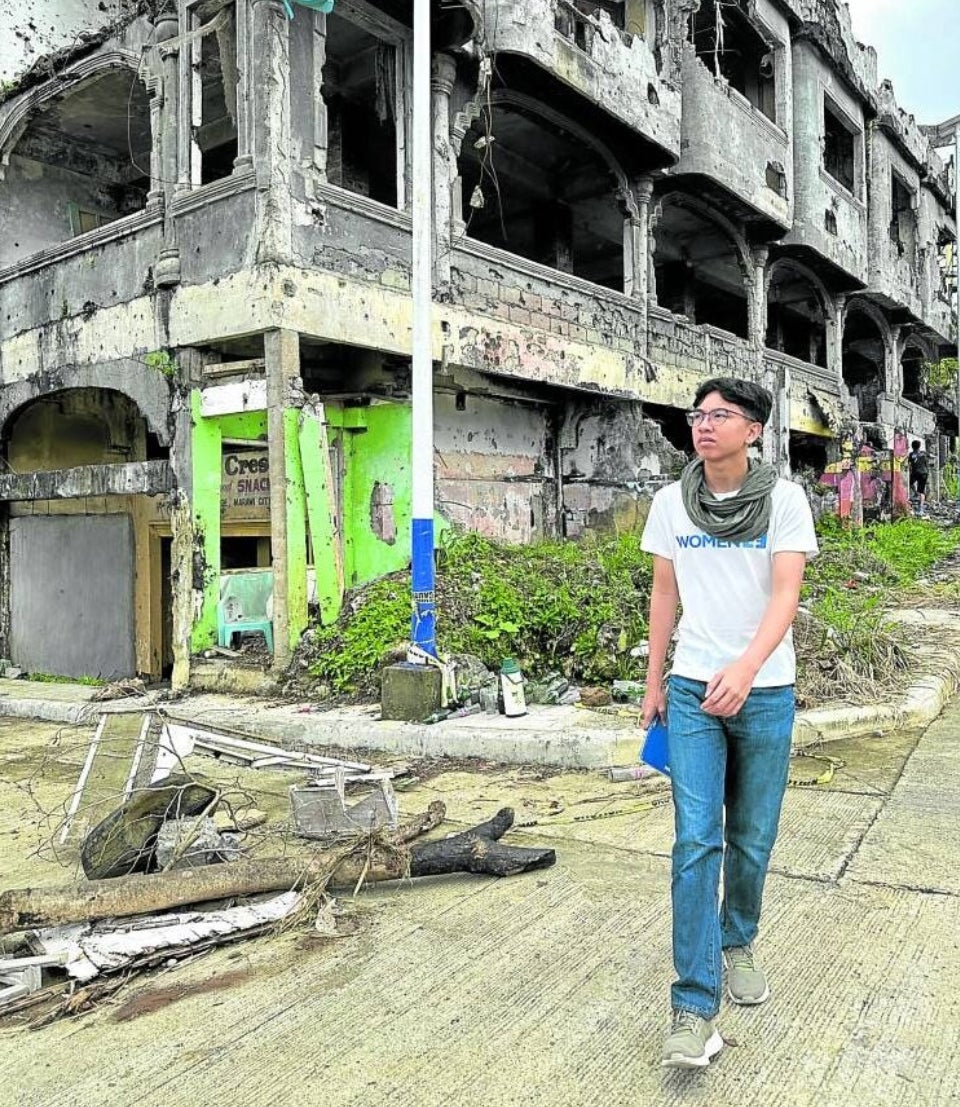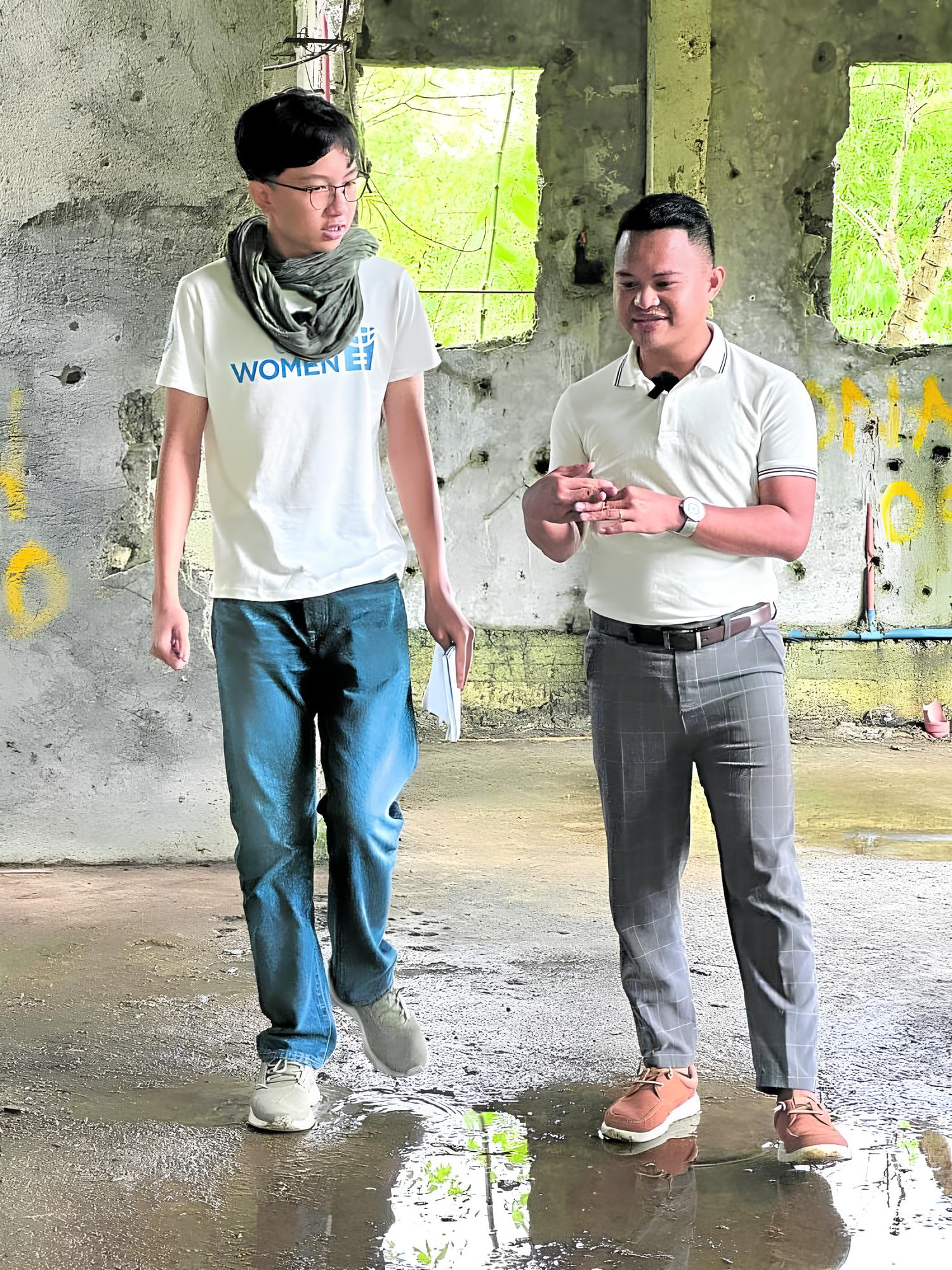War, peace and the power women wield
By Lucas Davila Sta. Ana
Date:
Originally published on Lifestyle Inquirer.

Babu Wilma is not your typical lola. She wasn’t home knitting or baking cookies for her grandkids like most grandmothers we know. Instead, she lived up in the mountains at a war camp all her life, teaching women how to become combatants. Babu Wilma spent her days training women how to fight, fire guns and take care of their wounded male soldiers … who were their husbands or brothers.
Babu Wilma was battalion commander to more than 20,000 women of the Bangsamoro Islamic Women’s Auxiliary Brigade or Biwab. Biwab was the female arm of the Moro Islamic Liberation Front or the MILF, a militant organization once seeking autonomy for the Moro people. Needless to say, Babu Wilma has seen so much strife and bloodshed in her life.
Now in her 70s, Babu Wilma no longer lives in the mountains but in Cotabato City, spending her days in a welding shop. She no longer trains women how to kill but how to live an ordinary life as working mothers. She now teaches them skills that matter in the real world—like budgeting money for the household, working for a living, managing kids as they go to school and changing their hardwired mindsets of war.
Reunited

“My life was irregular because I wasn’t always with my children and I wasn’t at home because I was training in the camps. I like my life now. Peace is very acceptable for us. Before, we could not recognize the face of our husbands, our grandchildren because we were in the camps. Now we are reunited with our families. There is peace. Peace is very important for us. Islam means peace,” says Babu Wilma.
In their small welding shop on the side of the road, Babu Wilma enjoys the ordinariness of conversations, group lunches and work with former female combatants. Learning welding, I also met Babu Mona, a former battalion commander. She no longer wields a gun but a welding torch. I was inspired by the smile on her face as she says, “I don’t miss my old life. I’m very happy now.”
I realize peace isn’t just a word, it’s a process. And this is the work that goes behind UN Women.
Nery Ronatay is the peace and security specialist of UN Women Philippines. He says women are impacted by war in a manner that’s different from men.
Visiting Marawi

“Women take care of their families when their husbands and sons have lost their lives. They take care of food and health. They make sure that the home and the community are reconstructed. But we don’t always find them in decision-making places, and this is why UN Women works with them to enable them to find a seat at the table so they make decisions together with the men.”From Cotabato City, we drove four hours to Marawi. This year marks the sixth anniversary of the Marawi siege. A five-month battle between government forces and the Maute rebels linked to the so-called Islamic State. Peace has been elusive in Mindanao for many decades, but the heavy shelling has disintegrated the whole city.
Entering the city, I did not know what to expect. As a 15-year-old, I have only seen war and its consequences in movies. It is more far reaching in the lives of people than I have thought.
Destroyed and bullet-holed homes still stand in ground zero but new buildings have also emerged—an enormous sports complex that can hold 3,700 people, a 1,000-seater auditorium, pilot schools, a mall, market and government offices. However, the city still resembles that of a ghost town simply because none of the residents live here.
I met Abdul Jaffar Mamintal, a former resident of ground zero and now a youth conflict mediator. Jaffar remembers the gunfire like it was yesterday. “What happened was a trauma. That’s what we’re trying to address. Now we are trying to engage the youth on how to avoid extremist ideologies. We don’t want them radicalized.”
Education is key. In a place where opportunities are scarce and living conditions are hard, guiding children and teenagers is crucial for their future.
Temporary shelters

After six years, most of the residents still live in temporary shelters. It is hardest for mothers. Jamalia Tiburon, a mother of six, lives in Area 4 or Sagonsongaon. There are more than 200 internally displaced families here. Livelihood is difficult and Tiburon struggles to make ends meet.
Something as basic as water is now a luxury. She says they have to buy water for bathing at P300 a drum. Drinking water is expensive too. She spends thousands a month on water alone.
“Ang mahal ng tubig dito, minsan hinihintay namin na umulan para makakolekta ng tubig. Gusto na namin bumalik sa mga bahay namin,” Tiburon says.
At ground zero, destroyed homes are marked with names and numbers on walls to mark their ownership in the hopes that one day they would have enough money to rebuild again.
Living in temporary shelters this long is very difficult. Conflicts arise for many reasons.
It was educational for me to learn the work of UN Women PH. Here they partner with local peace-building organizations to help in conflict mediation. Even after the war, violence comes in different forms. I found out the daily source of violence faced by women in BARMM does not come from armed encounters between the government and insurgents, but from clan feuds or rido.
Daphne Macatimbol of the UN Women Non-Violent Peace Force explains, “After the Marawi siege, we’ve established mechanisms for civilian protections like early warning and early response structure to prevent conflict. It’s important because it ensures the gains of the peace process will be sustained.”
Warriors of peaceDaphne says educating women of their rights helps not only themselves, but their children and the community as a whole. Now, they are able to speak out, fight back and protect other women as well.
Leading the way are the very women who were once instruments of war. Now, they have become of warriors of peace in their communities, mediating local conflicts that usually start in the home.
Traveling with my mom as she volunteers for UN Women PH has made me see the power women can wield in rebuilding their homes and communities. We often think of successful women in positions of power but being on this trip has taught me that empowerment comes in many forms—a former female combatant now in charge of her home and children is far more impactful for generations to come.
Women, no matter their stature in life, have the power to control their own destiny and above all, their family’s.